Featured Participants
Confirmed Participants Include:
 Siva Vaidhyanathan
Siva Vaidhyanathan
Siva Vaidhyanathan is a cultural historian and media scholar, and is currently an associate professor of media studies and law at the University of Virginia. From 1999 through the summer of 2007 he worked in the Department of Culture and Communication at New York University. Vaidhyanathan is a frequent contributor on media and cultural issues in various periodicals including The Chronicle of Higher Education, New York Times Magazine, The Nation, and Salon.com, and he maintains a blog, www.googlizationofeverything.com. He is a frequent contributor to National Public Radio and to MSNBC.COM and has appeared in a segment of “The Daily Show” with Jon Stewart. Vaidhyanathan is a fellow of the New York Institute for the Humanities and the Institute for the Future of the Book.
 Cheryl Ball
Cheryl Ball
Cheryl Ball is currently an Assistant Professor in the Department of English at Illinois State University where she teaches classes in multimodal composition, digital media, composition theory, and digital publishing. She is also editor of Kairos: A Journal of Rhetoric, Technology, and Pedagogy. Her teaching, research, and service demonstrate an agenda focused on multimodal composition practices in English studies (also called ‘new media studies’ in this context). Multimodal composition can be defined as the production of texts that use several modes of communication (i.e., audio, video, animation, color, interactivity, written text, etc.) often, although not exclusively, using digital technology. Dr. Ball teaches students how to compose rhetorically effective multimodal texts, teaching them that a text’s audience, purpose, and context correlate to the media choices they make.
 Joe Bisz
Joe Bisz
Joe Bisz is an Associate Professor in English at the Borough of Manhattan Community College. He is also one of the founders of the CUNY Games Network, a group of faculty and staff who meet to discuss the use of games and interactive pedagogies in the classroom.
Brett Bobley
Brett Bobley serves as the Chief Information Officer for the National Endowment for the Humanities (NEH) and is also the Director of the agency’s Office of Digital Humanities (ODH). Under ODH, Brett has put in place new grant programs aimed at supporting innovative humanities projects that utilize or study the impact of digital technology. Brett has a master’s degree in computer science from the Johns Hopkins University and a bachelor’s degree in philosophy from the University of Chicago. In 2007, Brett was recognized by the President of the United States for his exceptional long-term accomplishments with a Presidential Rank Award.
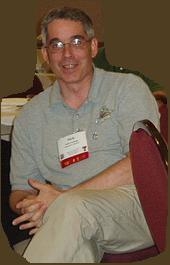
Nick Carbone
Nick began teaching online in 1988, and has published (some print even, but mostly via online communities) widely about teaching online. In 2000 Nick joined Bedford/St. Martin’s, a college textbook publisher which realizes that it is not in the book business, but the pedagogical tools business. His main focus as Director of New Media is on understanding how digital technologies — including tools for multimodal composing, visual rhetoric, community building, and serious gaming — alter teaching and learning.
 Stephen Duncombe
Stephen Duncombe
Stephen Duncombe is an Associate Professor at the Gallatin School of New York University where he teaches the history and politics of media. He is the author of Dream: Re-Imagining Progressive Politics in an Age of Fantasy and Notes From Underground: Zines and the Politics of Underground Culture, and the editor of the Cultural Resistance Reader, among other books. He also writes on the intersection of culture and politics for a range of scholarly and popular publications, and is a Research Associate at the Eyebeam Center for Art and Technology in New York City. Duncombe is a life-long political activist.
 Kathleen Fitzpatrick
Kathleen Fitzpatrick
Kathleen Fitzpatrick is Associate Professor and Chair of Media Studies at Pomona College, in Claremont, California. She is author of The Anxiety of Obsolescence: The American Novel in the Age of Television, published in 2006 by Vanderbilt University Press, and of Planned Obsolescence: Publishing, Technology, and the Future of the Academy, forthcoming from NYU Press and available for open peer review online at http://mediacommons.futureofthebook.org/mcpress/plannedobsolescence. She is co-coordinating editor of MediaCommons, and has published articles and notes in journals including the Journal of Electronic Publishing, PMLA, Contemporary Literature, and Cinema Journal.
Eileen Gardiner
 Eileen Gardiner is director of the ACLS program on the electronic publishing of monographs in the humanities, ACLS Humanities E-Book. She holds a Ph.D. in English and comparative literature. She is also the editor of Hell-on-Line, a website that comprises a comprehensive collection of visions, tours, and descriptions of the infernal otherworld from various religious and cultural traditions; and The Pilgrim’s Way to St. Patrick’s Purgatory, an online project that traces for the modern pilgrim the medieval route from Dublin to Lough Derg in County Donegal. With Ronald G. Musto, codirector of ACLS Humanities E-Book, she is the coauthor of the article on “The Electronic Book” in the newly published The Oxford Companion to the Book.
Eileen Gardiner is director of the ACLS program on the electronic publishing of monographs in the humanities, ACLS Humanities E-Book. She holds a Ph.D. in English and comparative literature. She is also the editor of Hell-on-Line, a website that comprises a comprehensive collection of visions, tours, and descriptions of the infernal otherworld from various religious and cultural traditions; and The Pilgrim’s Way to St. Patrick’s Purgatory, an online project that traces for the modern pilgrim the medieval route from Dublin to Lough Derg in County Donegal. With Ronald G. Musto, codirector of ACLS Humanities E-Book, she is the coauthor of the article on “The Electronic Book” in the newly published The Oxford Companion to the Book.
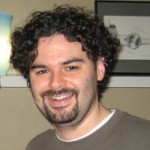 Josh Greenberg
Josh Greenberg
Joshua M. Greenberg is the New York Public Library’s Director of Digital Strategy and Scholarship, where he built the Digital Experience Group and led a number of initiatives to broaden the Library’s presence online. Dr. Greenberg, who joined the Library in 2007, was formerly the Associate Director, Research Projects, of George Mason University’s Center for History and New Media. He holds a Ph.D. in Science & Technology Studies from Cornell University (2004), maintains research interests in the history & sociology of information technology and media studies, and is the author of “From Betamax to Blockbuster” (MIT, 2008). He can be found online as “epistemographer”.
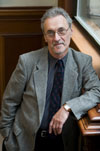 David Greetham
David Greetham
David Greetham is Distinguished Professor in the Ph.D. Program in English, and the Certificate Programs in Medieval Studies and Interactive Technology and Pedagogy. His main interests are in the cultural and technical transmission of texts (from ancient times to the present) and in the effects of the medium on the construction and reception of texts. He is the author of Theories of the Text, Textual Trangressions, Textual Scholarship and other books and articles. He has lectured on electronic textuallity in The Hague, Oxford (the Computing Centre), Innsbruck, London, Liverpool, Canberra, Calgary, ATINER (Athens), NCMS (Helsinki)” and throughout the U.S., and has contributed to such collections as Electronic Text (ed. Katherine Sutherland). His special concerns are with the [in]stability of identity in electronic media, and thus in such phenomena as digital morphing. He is currently working on problems of intellectual property and copyright in electronic environments.
 Clifford Lynch
Clifford Lynch
Clifford Lynch has been the Director of the Coalition for Networked Information (CNI) since July 1997. CNI, jointly sponsored by the Association of Research Libraries and Educause, includes about 200 member organizations concerned with the use of information technology and networked information to enhance scholarship and intellectual productivity. Prior to joining CNI, Lynch spent 18 years at the University of California Office of the President, the last 10 as Director of Library Automation. Lynch, who holds a Ph.D. in Computer Science from the University of California, Berkeley, is an adjunct professor at Berkeley’s School of Information. He is a past president of the American Society for Information Science and a fellow of the American Association for the Advancement of Science and the National Information Standards Organization. Lynch serves on the National Digital Preservation Strategy Advisory Board of the Library of Congress, Microsoft’s Technical Computing Science Advisory Board, the board of the New Media Consorium, and the Task Force on Sustainable Digital Preservation and Access; he was a member of the National Research Council committees that published The Digital Dilemma: Intellectual Property in the Information Infrastructure and Broadband: Bringing Home the Bits.
Ana Laura Martínez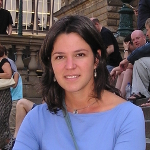
Ana Laura Martínez is the Coordinator of Social Impact Evaluation at Plan Ceibal, the one laptop per child and per teacher Uruguayan national program. She is a sociologist and a Master of Arts in Sociology and Education (Columbia University). She teaches Sociology to undergraduate and graduate students at the Universidad de la Republica and the Catholic University of Uruguay, respectively.
Ronald G. Musto
 Ron Musto is co-Director, with Eileen Gardiner, of ACLS Humanities E-Book. He holds a Ph.D. in medieval and Renaissance history from Columbia University and specializes in fourteenth-century Italy. Musto is a fellow of the American Academy in Rome and the winner of NEH and Mellon Foundation fellowships. His book awards include the AHA’s Marraro Prize. He has worked in publishing since 1975 and in 1985 co-founded Italica Press in New York City. Since 1987 at Italica Press he has been coauthor or editor of several digital publications, most recently of the ongoing Medieval Naples: A Documentary History. He is the editor of the PeaceDocs website on issues of peace and justice. With Eileen Gardiner he is co-author of the article on “The Electronic Book” in the recently published The Oxford Companion to the Book.
Ron Musto is co-Director, with Eileen Gardiner, of ACLS Humanities E-Book. He holds a Ph.D. in medieval and Renaissance history from Columbia University and specializes in fourteenth-century Italy. Musto is a fellow of the American Academy in Rome and the winner of NEH and Mellon Foundation fellowships. His book awards include the AHA’s Marraro Prize. He has worked in publishing since 1975 and in 1985 co-founded Italica Press in New York City. Since 1987 at Italica Press he has been coauthor or editor of several digital publications, most recently of the ongoing Medieval Naples: A Documentary History. He is the editor of the PeaceDocs website on issues of peace and justice. With Eileen Gardiner he is co-author of the article on “The Electronic Book” in the recently published The Oxford Companion to the Book.
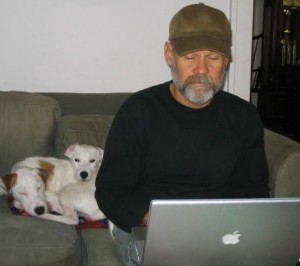 George Otte
George Otte
A member of the doctoral faculty at the CUNY Graduate Center (in the PhD Programs in English, Urban Education, and Interactive Technology & Pedagogy), George Otte became, in 2006, Academic Director of the CUNY Online Baccalaureate, CUNY’s first fully online degree, and has since been kicked upstairs as the chief academic officer of the CUNY School of Professional Studies, where that Online BA has been joined by an Online BS and an Online MS in Business. He was recently named University Director of Academic Technology for CUNY, a modulation in the title of CUNY Director of Instructional Technology, a position he has held since 2001.
 Phil Pochoda
Phil Pochoda
Phil Pochoda is Director of the University of Michigan Press. Previously he has been Associate Director and editorial director of the University Press of New England; editorial director of Anchor Books and Dial Press at Doubleday; and Vice-President at Simon & Schuster while publisher and editor-in-chief of Prentice-Hall Press. His latest article on digital publishing “U.P. 2.0: Some Theses on Academic Publishing” in the Journal of Electronic Publishing can be accessed here. He may be reached at [email protected].
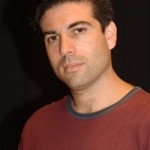 Avi Santo
Avi Santo
Avi Santo is an Assistant Professor at Old Dominion University in Norfolk, Virginia. He is the co-creator (along with Dr. Kathleen Fitzpatrick) of MediaCommons: A Digital Scholarly Network (http://mediacommons.futureofthebook.org), the creator and coordinating editor of In Media Res (http://mediacommons.futureofthebook.org/imr) and the co-creator (along with Christopher Lucas) pf Flow (http://flowtv.org). His research interests are varied, as he attempts to balance his work on the history of character brand licensing and merchandising, the subject of his forthcoming book from the University of Texas Press called Selling the Silver Bullet: The Lone Ranger and Transmedia Brand Management, 1933-2008, with his continued commitment to establishing evaluation protocols for peer-to-peer review of born digital scholarship. He has recently received funding to explore grant opportunities for a proposed digital cultural map of the Hampton Roads area that melds cultural geography with game theory and mobile technologies.
Tom Scheinfeldt
Tom Scheinfeldt is Managing Director of the Center for History and New Media and Research Assistant Professor of History in the Department of History and Art History at George Mason University. In addition to managing general operations at the Center for History and New Media, Tom directs several of its online history projects, including Omeka, the September 11 Digital Archive, the Hurricane Digital Memory Bank, the Papers of the War Department, 1784-1800, and Gulag: Many Days, Many Lives. Tom blogs at Found History (http://www.foundhistory.org) and co-hosts the Digital Campus podcasts (http://www.digitalcampus.tv).
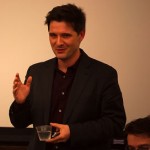 Trebor Scholz
Trebor Scholz
Trebor Scholz teaches in the Department of Culture and Media Studies at Eugene Lang College The New School for Liberal Arts in New York City. Scholz’ work is comprised of writing, teaching, and conference organization. Dr. Trebor Scholz’ research interests focus on social media, especially in education, art, and media activism outside the United States and Europe. His artwork was shown at several Biennials and he has contributed numerous book chapters and articles in the area of Internet Studies. Scholz presented at many dozen conferences worldwide. In 2004, he founded the Institute for Distributed Creativity (iDC). Its mailing list, which he moderates, is a leading discussion forum in network culture. Autonomedia published The Art of Free Cooperation of which he is the co-editor in 2007. Scholz convened several major conferences including Kosova: Carnival in the Eye of the Storm, Free Cooperation (with G. Lovink), Share Widely, and Situated Technologies (with M. Shepard and O. Khan) and The Internet as Playground and Factory (2009). He is currently working on a monograph and an anthology about digital labor.
 Bob Stein
Bob Stein
Bob Stein is founder and Co-Director of the Institute for the Future of the Book and founder of The Voyager Company. For 13 years he led the development of over 300 titles in “The Criterion Collection,” a series of definitive films on videodisc, and more than 75 CD ROM titles including the CD Companion to Beethoven’s Ninth Symphony, “Who Built America,” and the Voyager edition of “Macbeth.” Previous to Voyager, Stein worked with Alan Kay in the Research Group at Atari on a variety of electronic publishing projects. Eleven years ago, Stein started “Night Kitchen” to develop authoring tools for the next generation of electronic publishing. That work is now being continued at the Institute for the Future of the Book.
Joe Ugoretz
Joseph Ugoretz is Director of Technology and Learning at Macaulay Honors College and is a member of the Consortial Faculty for the CUNY Online Baccalaureate. As a professor of English, Dr. Ugoretz has over a decade of experience incorporating educational technology into his literature and composition classes and mentoring fellow faculty members across disciplines.Some of his collaborative work from the Visible Knowledge Project is documented in the online gallery “Looking at Learning, Looking Together.” Aside from educational technology, Dr. Ugoretz¹ research interests include Urban Legends and Internet Lore, Science Fiction, and Oral Performance Art (the subject of his fieldwork with pitchmen at county fairs and carnivals, and of his essay, “Quacks, Yokels, and Light-Fingered Folk: Oral Performance Art at the Fair.”
 Ben Vershbow
Ben Vershbow
Ben Vershbow is a New York-based digital humanities geek and theater artist. For four years, he was editorial director of the Institute for the Future of the Book, a Brooklyn-based think tank exploring the future of reading, writing and scholarship in the digital age. He works currently on digital initiatives at the New York Public Library and runs a theater collective, Group Theory.
John Willinsky
John Willinsky is Khosla Family Professor of Education at Stanford University and director of the Public Knowledge Project at Stanford, University of British Columbia, and Simon Fraser University. Much of his work, including his book, The Access Principle: The Case for Open Access to Research and Scholarship (MIT Press, 2006) as well as PKP’s award-winning open source software for journals and conferences, freely available through project’s website (http://pkp.sfu.ca).






Recent Comments